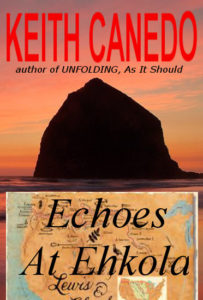
What was our crime?
In late August 1830, the cluster of about one thousand men, women and children set out on their journey of forced relocation. Although there were some wagons and horses, most had to walk. Their difficult path had to cross both the Tennessee River and later the Mississippi River with numerous smaller rivers and streams along the way. The harshest winter in many years developed causing these channels to be covered with inches of ice.
The people were driven to cut the ice away just to get water to drink. Heavy stretches of unatsi, snowfall lasting for sometimes for three days forced them to hold up in individual makeshift camps until the weather allowed the continuation of the fateful journey.
Wayanigawe, a once fierce warrior was tired and weak. His woman Ahyoka and their young son Ahanu were already sickened with fever, hunger and disease as were many of the seventeen-thousand displaced Cherokee people driven out. Huddled together with his family trying to stay warm, he prayed to the Great Spirit Above to take his woman and child and relieve their suffering. How much injustice and humiliation must one endure? With tearful eyes, he softly whispered to his family do na da go huh i, until we see each other again.
As the brutal procession continued, the low drone of unelanvhi golisdi nigada, unelanvhi golisdi nigada was chanted by the tired and beaten people over and over again. Questions swirled around in the echoes of Wayanigawes mind, demanding answers that never came. What was our crime? Our skin was dark. Our language was different and strange. And our customs and spiritual beliefs were beyond most white men’s understanding.
The cruel reality was that their forced removal and relocation was imposed due to the discovery of gold on their ancestral lands. Land populated by their people for generations, but at this time somehow belonged to the intruding U.S. government. Also, unbeknown to them was the fact that their homeland had increased value to be used for cotton plantations by the encroaching settlers who, as the government did before them, took without asking.
